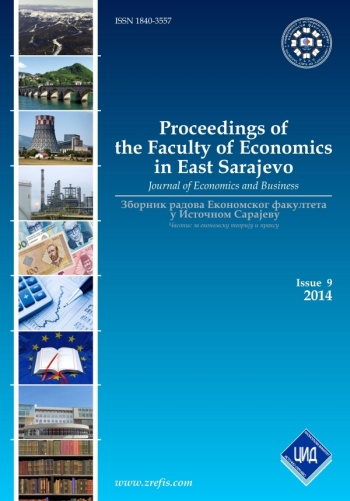ECONOMICS OF THEFT
DOI:
https://doi.org/10.7251/ZREFIS1409009MAbstract
‘Economics of Theft’ analyses theft asan economic and social activity. The article challenges
conventional attitude to theft as repulsive activity
which causes moral indignation. Theft is analysed
through two criteria which economists usually use
when judging any economic activity; efficiency and
equity. In addition to these two criteria a third one is
introduced, namely the optimal level of theft. In a vast
majority of cases theft redistributes income from better
off to worse off; therefore, theft passes the test of
equity. Also, at lower levels a thief’s utility exceeds the
damage which a victim of theft suffers. As levels of
theft increase, marginal utility to a thief falls and
marginal damage to a victim of theft increases.
Optimal level of theft is achieved when marginal utility
to a thief equals marginal damage to a victim of theft.
Economists do not feel any moral indignation to theft
since it passes the test of equity. What concerns
economists is the fact that theft is unproductive activity
which does not create any new value. Theft, therefore,
does not pass the test of efficiency. The article
analyses and compares theft with several economic
activities which do not create any material, intellectual
or spiritual value and which pass neither the efficiency
nor the equity test. Those activities might cause moral
indignation but are perfectly legal. Economists can
justify theft until optimal level is reached, i.e. when the
thief’s utility is equal to the damage suffered by a
victim of theft. Laws, however, punish every theft even
when it is socially just. Apparently, there is a friction
between the economic theory and the legal system.
Something must be wrong either with the economic
theory or with the law. Or maybe both of them are
wrong. A possible explanation might be found in
Montesque’s statement that the legal system is a
network through which big fish pass and small fish are
caught.
Downloads
Published
2014-12-31
Issue
Section
Чланци

